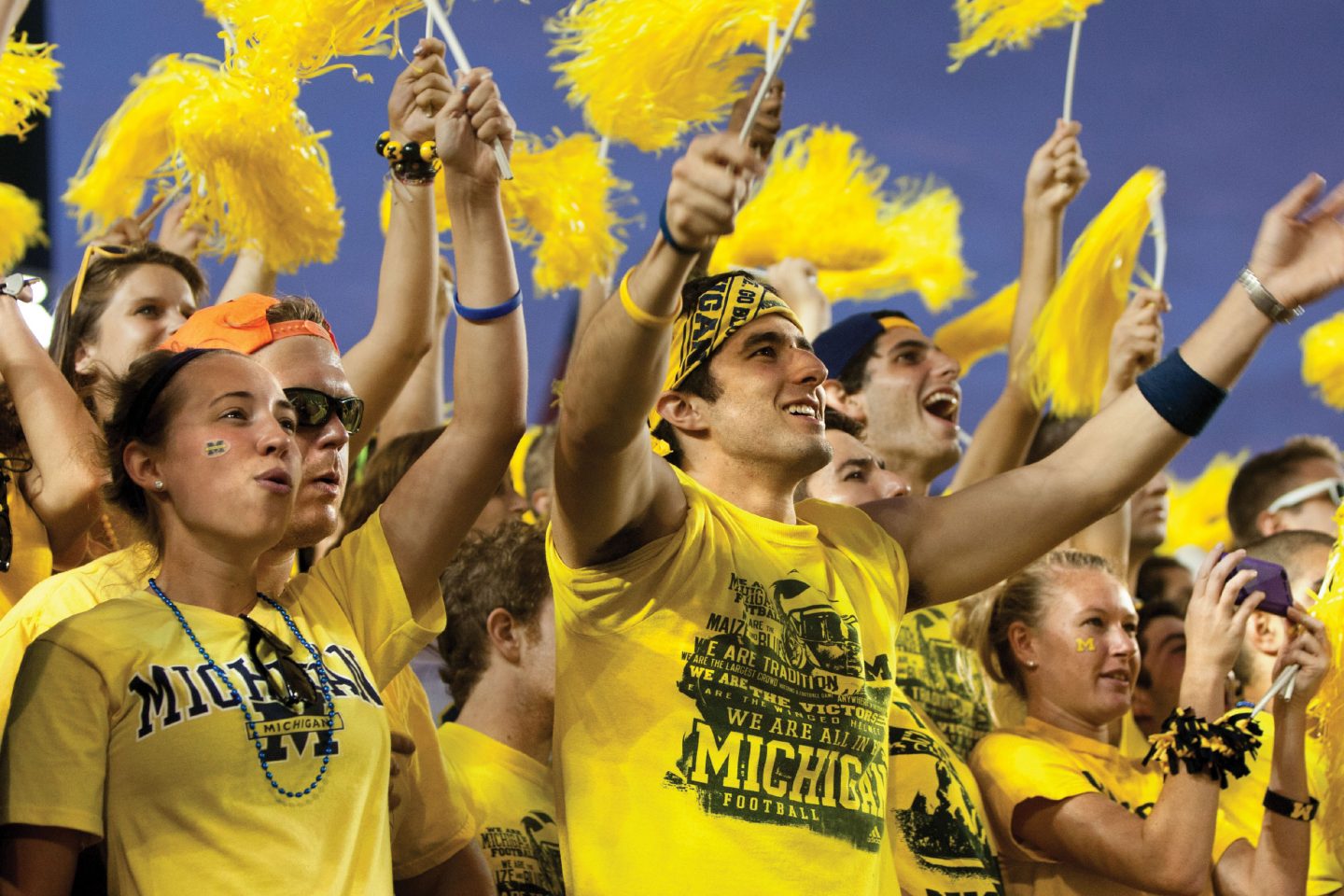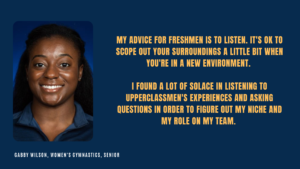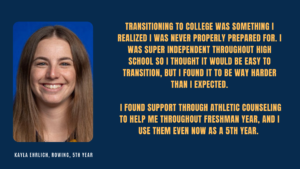By Rachel Amity, LMSW, Athletes Connected Assistant Director
You got into college and you’re going to be a student-athlete. What an accomplishment! Many people are excited to make the transition to college and collegiate athletics, but it can also be nerve-wracking. This transition comes with many exciting opportunities such as the chance to work toward athletic and academic or career goals, develop new relationships, and increase freedom and independence. People are coming to college from different families, cultures, cities, states, and countries, school systems, and team and coaching styles, so everyone’s experience will be different, but there are some common stressors that student-athletes may face during this transition period. Being aware of these stressors and preparing for them can make things more manageable.
For many, the demands and expectations increase in multiple areas of life. Often, there are increased athletic demands, whether that’s an expectation of improved performance and/or increased time dedicated to training and competition. There are also often higher academic demands with college courses. Sometimes, social commitments also increase as you begin to develop more relationships. These are all incredible opportunities to grow or to set new goals, and it may take additional work, time, and tools to learn how to balance and respond to these different obligations.
Some people find connections with people quickly, whether it’s through living in the dorms, teammates, or in classes. Some people may feel homesick after moving away. This can happen even if we feel like we are making new friends and building relationships in this new place. However, homesickness typically happens when we leave a well-developed social network and have some trouble adapting. Homesickness may include feelings of loneliness, sadness or emotional distress, and spending a lot of time thinking about home (or wherever/whoever is part of that social network). It is extremely common to experience some challenges in the first couple of months away from home, especially in the first 2-6 weeks.
Research suggests that if we can take that time to figure out what resources and tools will work for us to manage these different emotions and experiences, we may be more likely to adjust successfully for the long-term. Focusing on the first six weeks can often feel like a more manageable timeframe than the rest of the semester or rest of the year.
If you’re noticing some homesickness or other challenges adjusting to college, here are some quick ideas about coping strategies:
- Begin creating your new social network. Spend time with teammates outside of practice, study with classmates outside of class, or join a club.
- Journal or meditate. All Big Ten athletes get the Calm App and all U-M students get SilverCloud for free!
- Without going home or having those people visit, is there anything you can bring or recreate that may help you feel more connected to your network back home? This could include bringing certain items with you to college or having someone mail you a care package, cooking a meal, or even listening to specific music or sounds that remind you of home.
If I could give my younger self advice it would be to allow those around you, especially your teammates, to understand what you are going through because that support can be so helpful. – Kayla Ehrlich, Rowing, 5th year
Remember, some stress or nerves about coming to a new place are normal. However, if you are experiencing homesickness or feel like you are having difficulty adjusting to college to the extent that you are experiencing significant distress or some aspect(s) of your daily life is impaired, consider reaching out for assistance from Athletic Counseling or another professional.
Many athletes come into college with “athlete” as a crucial part of who they are — a foundational part of their identity. Quite a few athletes who are playing at this caliber have an experience of being a standout athlete at the previous level. That’s part of what got you here, and is often part of what has helped solidify “athlete” as part of your identity. However, many of your teammates have likely had similar experiences. Because of this, sometimes the big fish in a big pond phenomenon occurs, meaning a star player or a starter comes onto a team of other former starters without enough spots for everyone to keep filling that role. Or, maybe you got great grades in high school and find that you’re coming to a school full of other people who also excel in school. This can be incredibly challenging and can feel like all of a sudden we don’t know exactly who we are or what our role on the team or in the classroom is. You’re still an athlete, still a student, but sometimes we need to make adjustments. Luckily, college is often the perfect place to explore your interests and your identity.
Check out this video about how former U-M Women’s Lacrosse player Mira navigated her transition to college.
As you start to figure out how you fit and what’s important to you in this new place, think about exploring and developing your identity beyond being an athlete. You’ll probably hear about being more than an athlete throughout your time as an athlete. A simple statement in some ways, but this can make a huge difference as you go through any variety of transition periods. If you have some level of confidence or commitment to other areas of who you are outside of athletics, not everything hinges on how much or how well you play.
RESOURCES
You have access to resources and opportunities in college that you may not have such easy access to again. I know the idea of spending your already very limited free time doing more things can be unappealing at times, but consider taking advantage of all the university has to offer. Some of these resources include:
- Clubs and student organizations
- Counseling and Psychological Services (CAPS)
- Athletic Counseling
- Trotter Multicultural Center
- Spectrum Center
- MACC
- Leadership Development
- Student-athlete groups (Athlete Ally, Women Uplifting Women, SAAC, IAN, WAR, Athletes in Action)
- University Musical Society
 About the Author
About the Author
Rachel Amity is the Assistant Director of the Athletes Connected program and a member of the U-M Athletic Counseling Team. Previously, she worked as the MSW intern with the athletic department. Rachel is originally from Corvallis, Oregon, where she grew up playing soccer, volleyball, and lacrosse. She graduated from Lewis & Clark College with a Bachelor’s in Psychology, where she also worked as a student athletic trainer.


